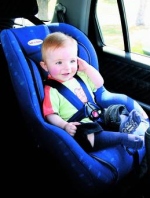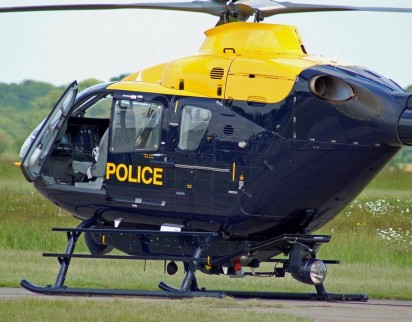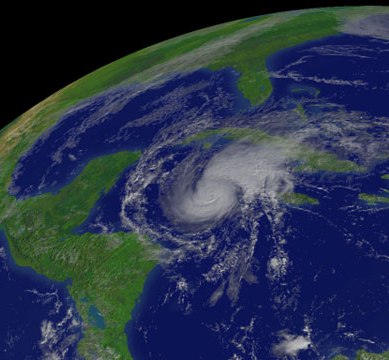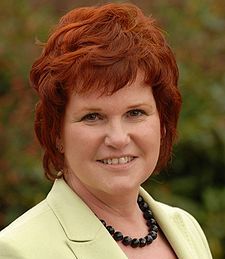Archive for July, 2009

Brac police aim to make children safer
 (CNS): Police on the Sister Islands are targeting traffic violations that endanger lives, especially those of the youngest members of the community. “In Cayman Brac we are extremely concerned about people travelling without seatbelts – and in particular, young children," said Area Commander Chief Inspector Malcolm Kay. "It is beyond belief that parents would, in this day and age, choose to transport their most precious cargo in such an indifferent manner. If they are caught they will be prosecuted.” Generally, motorists in Cayman Brac and Little Cayman should brace themselves for an increased police focus on the roads, the RCIPS said.
(CNS): Police on the Sister Islands are targeting traffic violations that endanger lives, especially those of the youngest members of the community. “In Cayman Brac we are extremely concerned about people travelling without seatbelts – and in particular, young children," said Area Commander Chief Inspector Malcolm Kay. "It is beyond belief that parents would, in this day and age, choose to transport their most precious cargo in such an indifferent manner. If they are caught they will be prosecuted.” Generally, motorists in Cayman Brac and Little Cayman should brace themselves for an increased police focus on the roads, the RCIPS said.
The move comes as officers recognise a growing concern relating to the road safety on both Sister Islands. “We take the safety of all road users extremely seriously,” said Kay, who will be targeting drivers who break the traffic law.
A number of measures have been taken recently to ensure that officers in Cayman Brac can carry out their roles effectively, including fitting a second marked police vehicle with mobile radar equipment and re-qualification of officers in the use of the radar machine. “Residents and visitors should expect to see an increase in traffic enforcement and not only in the area of speeding – but in all areas of road safety,” said Kay. “Parents should also be warned that we will be targeting those who fail to strap their children in safely.”
In addition, officers will continue to educate young children at the Cayman Brac Day Care Centre on the importance of wearing seatbelts. Children will be encouraged to ask their parents to strap them in and remind their parents to put their own seatbelts on. In Little Cayman, officers will be targeting speeders thanks to the arrival of a handheld radar machine.
“On such a small island it is completely unacceptable for people to disrespect not only the law but their fellow residents by driving at high speeds,” said Kay. “It was made quite clear at our recent community meeting that residents are concerned about the excessive speed of cars and we are prepared to take positive action to put a stop to it.”
Residents on both Islands are reminded about the dangers of driving in the back of pickup trucks and Kay warned that anyone seen carrying people in such a way would be stopped and dealt with according to the Insurance Law and Traffic Law.
Anyone with information about crime taking place in the Sister Islands should contact their local police station or Crime Stoppers on 800-8477 (TIPS). All persons calling Crime Stoppers remain anonymous, and are eligible for a reward of up to $1000, should their information lead to an arrest or recovery of property/drugs.

PAC to tackle helicopter saga
 (CNS): The Public Accounts Committee (PAC) is set to address the ongoing fiasco regarding the police helicopter, which has already cost government more than $3 million with no sign of the aircraft. Discussing a report Auditor General Dan Duguay submitted in October 2008, the committee decided that they needed to hear from the people involved as to exactly what was going on. Duguay said he was dismayed that having made straight forward recommendations about the helicopter, they had still not been acted upon more than nine months later.
(CNS): The Public Accounts Committee (PAC) is set to address the ongoing fiasco regarding the police helicopter, which has already cost government more than $3 million with no sign of the aircraft. Discussing a report Auditor General Dan Duguay submitted in October 2008, the committee decided that they needed to hear from the people involved as to exactly what was going on. Duguay said he was dismayed that having made straight forward recommendations about the helicopter, they had still not been acted upon more than nine months later.
Chaired by North Side Independent MLA Ezzard Miller, the committee asked Duguay a number of questions on Wednesday (29 July) about his report and findings as well as what he knew about the current situation. Duguay explained that in the report, which he had conducted as a result of a request by the governor, he had recommended that the government move to assess the cost of retro fitting the craft, or alternatively, and what he thought was more prudent, sell the helicopter as quickly as possible and start the process of assessing s the police air surveillance needs from scratch.
“I thought I had given clear options to follow but I am dismayed that nothing has been done,” Duguay told PAC. “When I finished the report in October of last year I was told the helicopter was ready to be brought here, but it’s still not here and I’m interested to find out why not.”
Moses Kirkconnell, the only opposition member on the committee, said that the $3 million spent on the helicopter was bad enough but his real concern was that even today no one seemed to have any idea where the helicopter actually is or what’s happening to it.
Miller said that he understood the helicopter is still being held in Louisiana and that government is paying a not insignificant storage fee to keep it there, something which Duguay concurred, noting that was the last he had heard too.
The PAC agreed, not without a hint of irony, that as it was unlikely that former commissionerStuart Kernohan was going to come and answer to the PAC and they had better start with David Baines, the new RCIPS commissioner. It was also decided that Eric Bush from the portfolio and the Chief Secretary Donovan Ebanks, who was deputy chief secretary at the time of the purchase and closely involved, would need to be called.
Duguay also recommended that a representative from the Civil Aviation Authority be called as well, as he noted that part of the problem with the whole project was that no one from the police had spoken with the CAA to discuss the rules regarding flight to the Sister Islands without flotation devices. He said that the CAA had said it was willing to discuss the rules regarding air operation and they were not necessarily set in stone. Duguay said the CAA may well be able to shed light on the absolute minimum requirements for using helicopter between all three islands.
Duguay noted that part of the whole problem was that the needs of government and the police had not been properly established before the purchase went ahead. “There was a mission creep when people heard we had got a helicopter and people wanted to add things” he said. Duguay explained that the government bought a police helicopter for drug interdiction but then wanted to turn it into a search and rescue helicopter, something that actually costs in the region of $20 million. “Cabinet was sold an idea but the equipment was not capable of it.” He noted that no one in the RCIPS really had the expertise to purchase a helicopter.
Miller noted the problem Cayman now faced was that the helicopter was largely obsolete. “If we don’t make a decision soon we might not be able to sell it,” he added. It was noted that the reason why the UK had sold the helicopter in the first place was because it would have been too expensive to retro fit the craft to meet the new CAA regulations there — ones which the committee believed would soon come to Cayman as well.
Dwayne Seymour, another committee member present, lamented the fact that this purchase seemed to be systematic of situations in government departments where the country keeps buying things that are not right, something he said the new government had to tackle.
(Photo top: an EC135T1 helicopter similar to that bought by the RCIPS)

Sudanese woman risks flogging for wearing trousers
 (Times Online): A woman journalist is taking on the feared Sudanese morality police to challenge the country’s draconian laws on public dress, insisting on being tried for the crime of wearing trousers in public and risking a punishment of 40 lashes. Lubna Ahmed al-Hussein was at a private party in a restaurant in an upmarket district of Khartoum on July 3 when a group of public order policemen — given the task of enforcing strict Islamic rectitude — burst in. They detained her and a dozen other women for wearing trousers, considered indecent according to the law.
(Times Online): A woman journalist is taking on the feared Sudanese morality police to challenge the country’s draconian laws on public dress, insisting on being tried for the crime of wearing trousers in public and risking a punishment of 40 lashes. Lubna Ahmed al-Hussein was at a private party in a restaurant in an upmarket district of Khartoum on July 3 when a group of public order policemen — given the task of enforcing strict Islamic rectitude — burst in. They detained her and a dozen other women for wearing trousers, considered indecent according to the law.

Radar to put Cayman on map
 (CNS): What has been described as a weather black hole round the Cayman Islands will be a thing of the past by the end of 2011 with the installation of a Doppler weather radar system on Grand Cayman. Part of a project that offers the Cayman Islands Airports Authority (CIAA) access to US$5.5 million (€4.16 million) from the European Commission (EC) to establish an early warning radar system in the Cayman Islands, the radar will give Cayman its own severe weather warning system and enable us to track dangerous weather systems, such as hurricanes, ourselves.
(CNS): What has been described as a weather black hole round the Cayman Islands will be a thing of the past by the end of 2011 with the installation of a Doppler weather radar system on Grand Cayman. Part of a project that offers the Cayman Islands Airports Authority (CIAA) access to US$5.5 million (€4.16 million) from the European Commission (EC) to establish an early warning radar system in the Cayman Islands, the radar will give Cayman its own severe weather warning system and enable us to track dangerous weather systems, such as hurricanes, ourselves.
Speaking at a specially convened conference on Wednesday morning, to announce the project, Leader of Government Business McKeeva Bush explained that the system will cover a range of 400km (250 miles), providing weather surveillance over all three islands, as well as surrounding maritime areas. It will also be linked to a regional radar network, including in Trinidadand Tobago, Barbados, Belize and Guyana.
The LoGB said that while the EU is funding the bulk of the project the Cayman Islands government will commit €500,000 in kind directed towards land acquisition, the provision of services and local technical support. Through the CIAA, Cayman will also assume responsibility for co-ordinating the technical aspects of the project and for operating and maintaining the radar once it is installed.
“When it comes to disaster management, it is particularly true that strength is to be found in numbers. And while the establishment of this radar system will no doubt strengthen our local disaster management capability, it will even more importantly enable us to better contribute towards regional disaster management and mitigation efforts,” Bush added.
A technical team from the Caribbean Meteorological Organisation (CMO) is currently in Cayman for discussions with Director of Meteorological Services Fred Sambula and other government officials and to explore potential sites for locating the weather radar, after which its specifications and the types of structure to accommodate the system will be decided.
Coordinating CMO Director Tyrone Sutherland said that the radar would be installed on Grand Cayman, and although a location has not yet been identified, he said the eastern end of the island would be the most likely choice. It will be installed in as remote a location as possible away from residential areas but it also it had to be easily accessible and on as high ground as possible. The CIAA will tender for the supply and installation of the tower through an open works tender.
Sambula said the system would be a powerful, high-precision Doppler radar, which is particularly suited to the extremely heavy rainfall and thunderstorm activity experienced in tropical oceanic regions. He explained that it would allow easier observation and study of heavy rainfall, waterspouts and so-called ’freak’ storms. “The Doppler capabilities will enable forecasters to more accurately warn of wind shear problems which are hazardous to landing and departing aircraft,” he added
The system is expected to boost the wider region’s ability to prepare for natural disasters, and once complete the Meteorological Services will provide radar information to the public, the media, and Hazard Management of the Cayman Islands (HMCI).
Minister for District Administration, Works and Gender Affairs Juliana O’Connor-Connolly said recent history has shown how vulnerable Cayman is to hurricanes and other severe weather hazards. “Our weather experts have done a tremendous job in warning residents as these hazards approach but the timeliness and accuracy of warnings will be significantly improved with real-time information from a weather radar system,” she said.

Make sure travel documents are up to date
 (CNS): Official documents such as passports, birth and marriage certificates, naturalisation and registration papers, Caymanian Status and Permanent Residence certificates, should be kept together in waterproof bags or containers and stored securely in a place that is easily accessible during emergencies, the Passport and Corporate Services (PCS) Office says and urges everyone to ensure that official documents are always secured and current – during the hurricane season and beyond.Residents are especially reminded to check that family travel documents are in order. “Advance preparation is critical during hurricane season,” said Head of Passport & Corporate Services Janice McLean in a release from that office.
(CNS): Official documents such as passports, birth and marriage certificates, naturalisation and registration papers, Caymanian Status and Permanent Residence certificates, should be kept together in waterproof bags or containers and stored securely in a place that is easily accessible during emergencies, the Passport and Corporate Services (PCS) Office says and urges everyone to ensure that official documents are always secured and current – during the hurricane season and beyond.Residents are especially reminded to check that family travel documents are in order. “Advance preparation is critical during hurricane season,” said Head of Passport & Corporate Services Janice McLean in a release from that office.
“This is so important for those who decide to leave the Islands because of a storm or any other emergency. Residents must remember that travel documents cannot be issued when the PCS or other government offices close due to inclement weather or on weekends and holidays,” she said.
Acting Chief Immigration Officer Kerry Nixon agreed. “Planning ahead helps reduce stress during an emergency,” she said. “Therefore, while PCS staffers accommodate emergency medical travel demands, residents should periodically check their documents to ensure that they are valid for routine or other emergency travel.”
Emphasizing the importance of precautionary measures during hurricane season Nixon added, “PSC employees must also secure their families and homes. They cannot be expected to endanger themselves to facilitate persons who neglect to ensure that their travel documents are in order. It is wise to be prepared.”
People travelling to the United States are also advised to pay careful attention to the following:
Holders of Cayman Islands or United Kingdom passports with a US visitor’s visa may travel to the US on commercial, charter or air ambulance flights.
Holders of Cayman Islands passports without a US visitor’s visa must obtain a US visa waiver from the Passport Office to travel to the US on commercial or air ambulance flights.
Holders of UK passports without a US visitor’s visa but with an approval from the Electronic System for Travel Authorization may travel to the US on commercial flights only.
Holders of Cayman Islands passports should ensure that the passports are valid for at least six months after the intended date of departure from the US.
Residents travelling elsewhere should also know and comply with the travel requirements of respective destinations. For example, anyone holding a Caymanian passport who intends visiting Jamaica must first obtain a visitor’s visa for that island.

Police name visitor who died
(CNS): Police have named the 71-year-old man who died while swimming at Rum Point on Friday, 24 July. He was John Henry Smallis from California, USA. The RCIPS sends its condolences to family and friends of the victim. Mr Smallis had been vacationing in the Cayman Islands with relatives. On Friday, he had been swimming at Rum Point and had got into difficulty. He was found in the water unresponsive and was taken to hospital but was unfortunately pronounced dead. An investigation is being carried out by Bodden Town detectives and a post mortem has been conducted. At this point there is nothing to suggest any suspicious circumstances.
Robots take on firefighting
(BBC): A team of fire-fighting robots has been unveiled by defence contractor QinetiQ at a demonstration in London. The display showcased a quartet of robots aimed at tackling the particular risk of fires involving cylinders of the industrial gas acetylene. The robots range from a nimble, stair-climbing reconnaissance unit to a diesel-powered robot with a large claw. The two-year project is funded by Network Rail, the Highways Agency and Transport for London. Organised in conjunction with the London Fire Brigade, the project has been on trial since last year, with the team of robots on call for incidents that happen in London and the Southeast.

Evolution’s winners & losers
 (Eureka): Mammals and many species of birds and fish are among evolution’s "winners," while crocodiles, alligators and a reptile cousin of snakes known as the tuatara are among the losers, according to new research by UCLA scientists and colleagues. "Our results indicate that mammals are special," said Michael Alfaro, a UCLA assistant professor of ecology and evolutionary biology and lead author of the research.
(Eureka): Mammals and many species of birds and fish are among evolution’s "winners," while crocodiles, alligators and a reptile cousin of snakes known as the tuatara are among the losers, according to new research by UCLA scientists and colleagues. "Our results indicate that mammals are special," said Michael Alfaro, a UCLA assistant professor of ecology and evolutionary biology and lead author of the research.
Cruise line profits fall
(WJS): The world’s second largest cruise operator, Royal Caribbean Cruises Ltd. swung to a second-quarter loss amid charges and lower revenue, as the prolonged slump in travel spending led the cruise-ship operator to post its second straight quarterly loss. The Miami company also issued a weak third-quarter view and lowered its full-year outlook, while boosting its expectation of the effects of the H1N1 virus on its earnings. Royal Caribbean expects net yields to fall about 14% this year, lower than its April view of a 12% to 13% drop.

Hedge Fund rules to change
 (FT.Com): Controversial draft regulations for hedge funds will be substantially amended, the new head of the European parliament’s economic and monetary affairs committee has told the Financial Times. Sharon Bowles, British MEP and new chair of the committee, said European pension funds and institutional investors faced “excommunication” from global capital markets if the draft directive on alternative investment funds was implemented unchanged. The proposals, drawn up amid public and political anger over the risks taken by some financial institutions that led to the crisis, have drawn the ire of Hedge Funds and financial centres around the world.
(FT.Com): Controversial draft regulations for hedge funds will be substantially amended, the new head of the European parliament’s economic and monetary affairs committee has told the Financial Times. Sharon Bowles, British MEP and new chair of the committee, said European pension funds and institutional investors faced “excommunication” from global capital markets if the draft directive on alternative investment funds was implemented unchanged. The proposals, drawn up amid public and political anger over the risks taken by some financial institutions that led to the crisis, have drawn the ire of Hedge Funds and financial centres around the world.